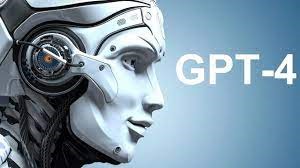Heart Disease is Predicted by Machine Learning
Machine learning can be a useful tool in predicting early therapy for heart disease. Heart disease is a complex medical condition that requires prompt diagnosis and management to prevent complications and improve outcomes. Early identification of patients who may benefit from specific therapies can be challenging, but machine learning algorithms can help by analyzing large datasets and identifying patterns that may be difficult for human clinicians to detect.
The diagnosis of heart disease can be difficult, even for heart disease specialists. Artificial Intelligence-Clinical Decision Support System (AI-CDSS) has the potential to assist physicians in heart disease diagnosis. The aim of this work was to evaluate the diagnostic accuracy of an AI-CDSS for heart Disease. AI-CDSS for cardiology was developed with a hybrid (expert-driven and machine-learning-driven) approach of knowledge acquisition to evolve the knowledge base with heart disease diagnosis. [1]

Figure 1. Heart Disease is Predicted by Machine Learning
In this article, we will be closely working with the heart disease prediction and for that, we will be looking into the heart disease dataset from that dataset we will derive various insights that help us know the weightage of each feature and how they are interrelated to each other but this time our sole aim is to detect the probability of person that will be affected by a savior heart problem or not.
Takeaways
The Heart Disease prediction will have the following key takeaways:
- Data insight: As mentioned here we will be working with the heart disease detection dataset and we will be putting out interesting inferences from the data to derive some meaningful results.
- EDA: Exploratory data analysis is the key step for getting meaningful results.
- Feature engineering: After getting the insights from the data we have to alter the features so that they can move forward for the model building phase.
- Model building: In this phase, we will be building our Machine learning model for heart disease detection.[2]
Heart Disease Prediction - Best Machine Learning Approaches
1. Random Forest Classifier
The random forest algorithm provides flexibility and robustness for classification tasks using tabular data, which few other standard models can. Given its simplicity and versatility, the random forest classifier is widely used for fraud detection, loan risk prediction, and predicting heart diseases.
2. K-Nearest Neighbors
As the name says, a k neighbors classifier takes a data point and finds k other data points nearest to it in the vector space. In a supervised fashion, KNN creates clusters of the data samples having the same target value. Whenever a new value needs to be classified, it uses a distance metric to assign it to one of the classes.
3. Decision Tree classifier
Decision Trees are the individual models that make a random forest after ensembling. Each decision tree classifier uses the dataset's attributes to create a tree. As shown in the image below, the branches end up in the leaves that are made up of target values.
4. Support Vector Machines
A Support Vector Machine (SVM) algorithm is a non-probabilistic classifier aiming to generate hyperplanes that divide the data points of two classes in the vector space. For N number of features and M targets, SVM creates M-1 N-dimensional hyperplanes that separate data points of different classes from each other.
5. Artificial Neural Networks
An ANN is perhaps the most popular machine learning model in today's AI landscape, given its wide applications in deep learning in the form of convolutional neural networks. However, a normal ANN comprised of a handful of linear nodes can perform comparable to the best standard ML models.
References:
- https://www.nature.com/articles/s41746-020-0261-3
- https://www.analyticsvidhya.com/blog/2022/02/heart-disease-prediction-using-machine-learning/
- https://www.projectpro.io/article/heart-disease-prediction-using-machine-learning-project/
Cite this article:
Gokula Nandhini K (2023), Heart Disease is Predicted by Machine Learning, AnaTechMaz , pp 250















